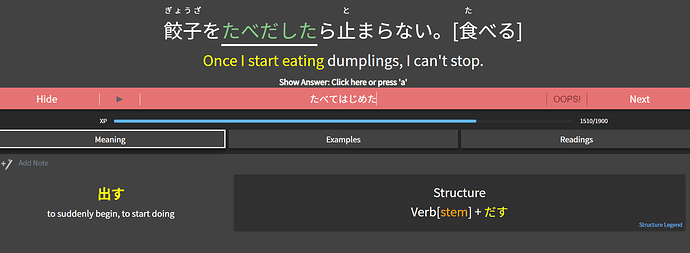Is 食べて始めたら wrong in this case? Also, how would I know whether to use はじめる or だす?
Oops, please delete this, I noticed my mistake just as I posted it. Sorry…
No worries, regarding your question 出す is generally used when something starts suddenly (burst) like 泣き出す to burst into tears or 笑い出す to burst into laughter, 降り出す to start raining/snowing etc.
So instead of だす you can use 急に 。。。はじめる and it will mean the same thing.
I’m still confused by this example. MaggeiSensei says (in the readings section) that you wouldn’t use 出す about yourself and it also tends to refer just to the start of the action. So why is it 出した here and not 始めた?
Hey 
It is perfectly fine to speak about yourself using だす, though it is more often used for things that happen regardless of speaker’s will like 泣きだす(emotions) or 雨が降り出す(weather changes)。
私は妹の冗談がわかって笑い出した。
When I got my sister’s joke I burst with laughter.
It is used there to emphasize that the “eating” happens spontaneously, suddenly.
Also Aだしたらとまらない is a very common set phrase meaning that once you start doing A, you cannot stop.

